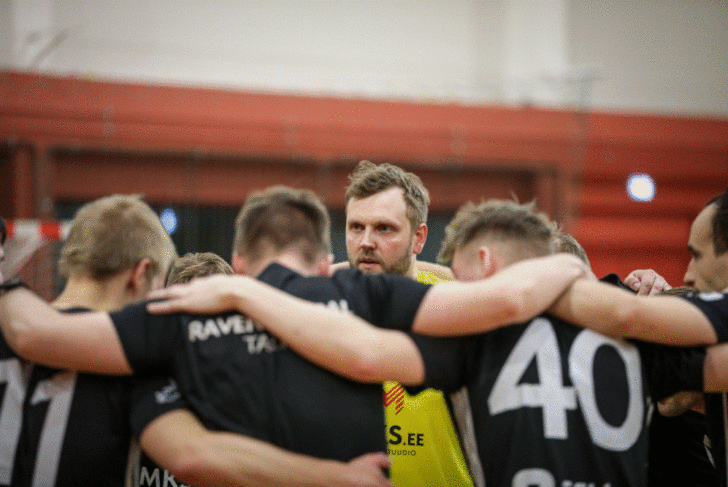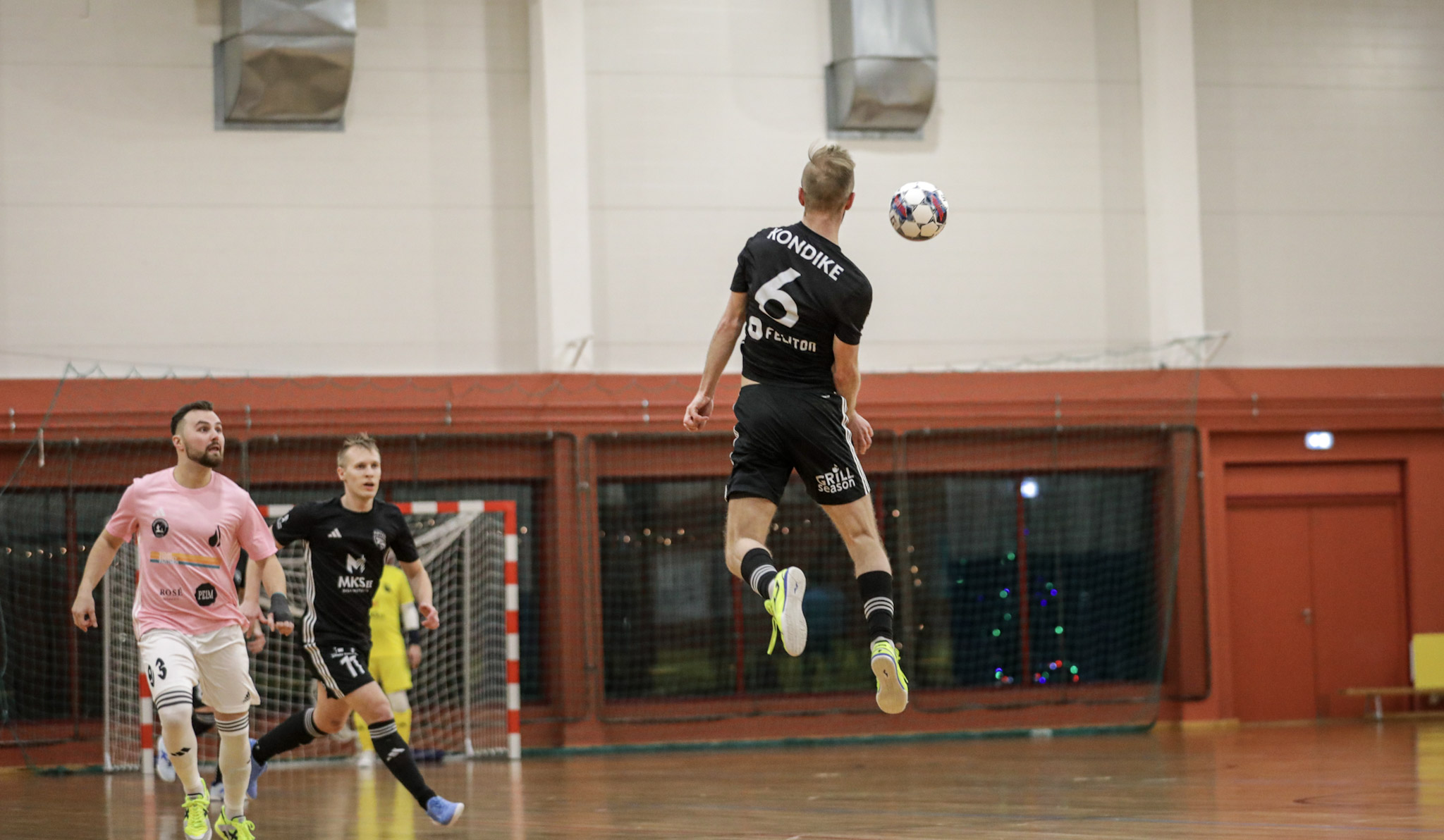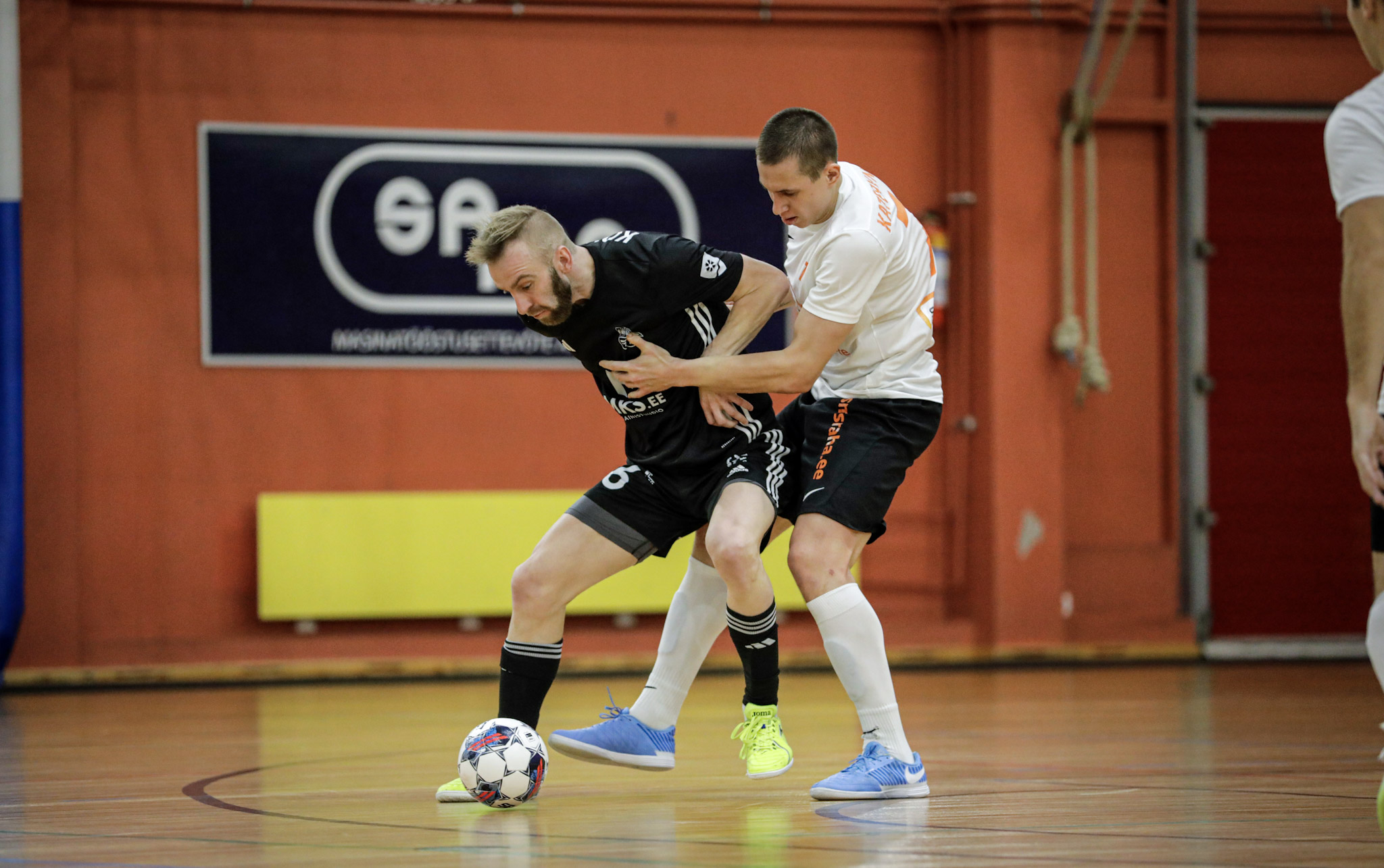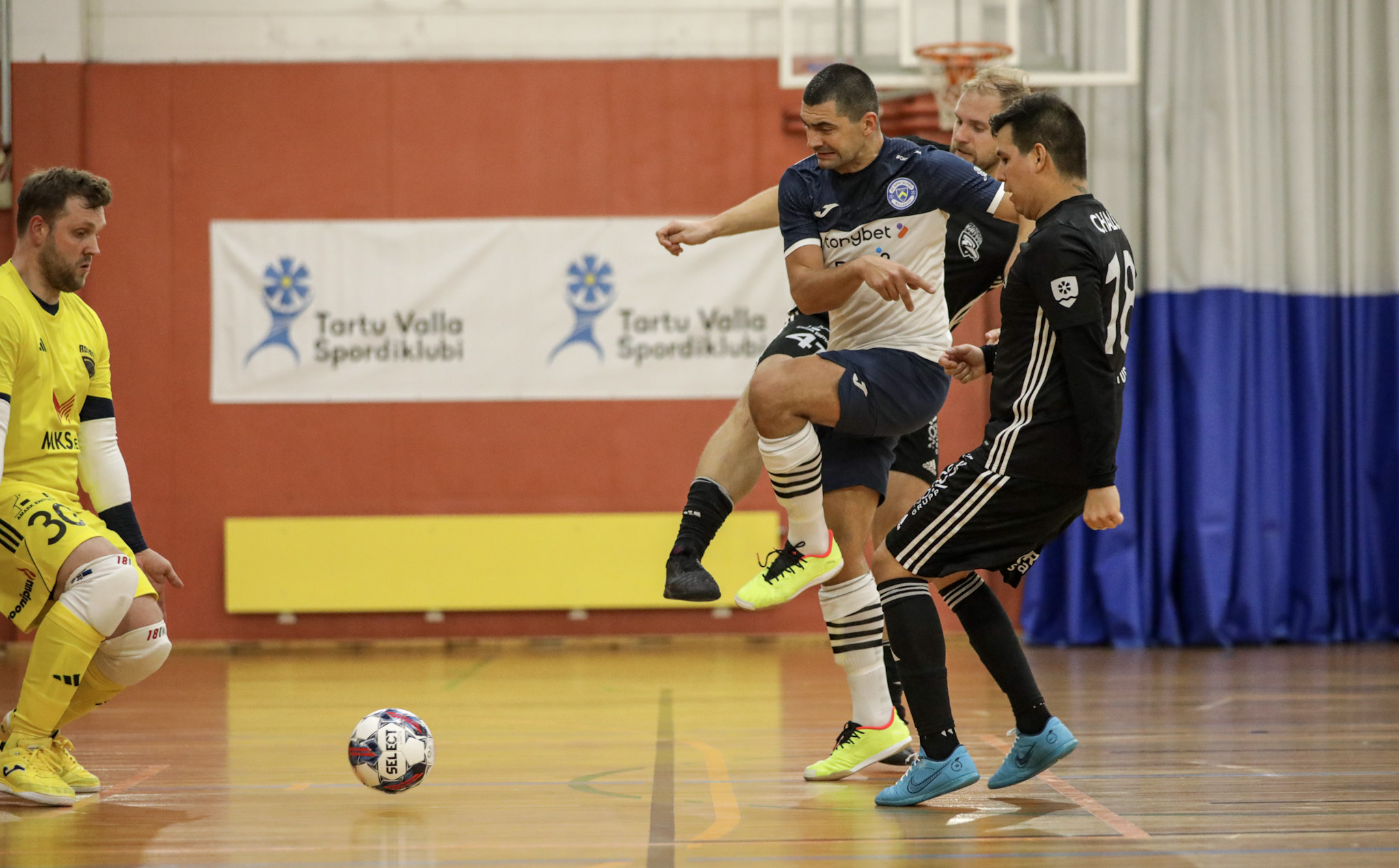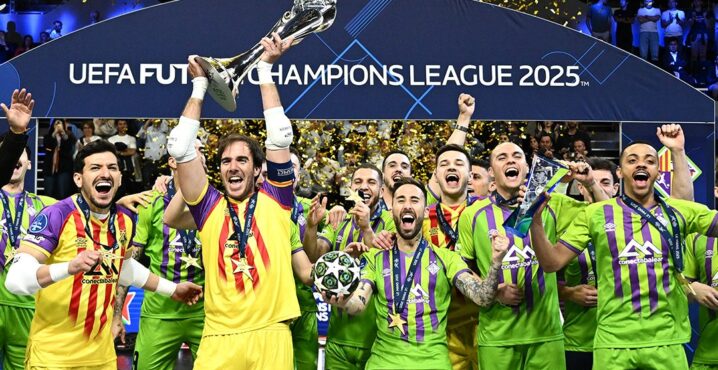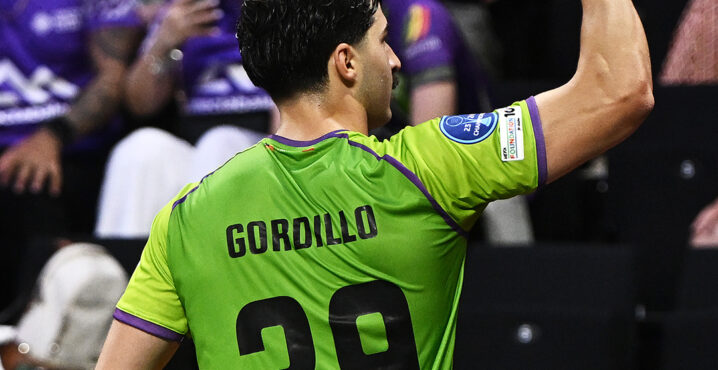Estimated reading time:16 minutes, 21 seconds
Exploring the Journey of Ravens Futsal Club, Age Gaps, Facility Constraints, and the Quest for Sustainable Development Amidst Hurdles
In recent years, the Baltic States have caught the attention of the Futsal world. Lithuania hosted the FIFA Futsal World Cup in 2021 and will co-host the UEFA Futsal EURO 2026 with Latvia. Lithuanian futsal club Kauno Žalgiris, this year, was ranked in 12th place, earning them entry into the UEFA Futsal Champions League at the main round stage.
Latvia made the headlines in 2023, when Riga Futsal Club signed Futsal legend Richardinho, among other talented players. For the first time in their history, they made it from the preliminary round to the elite round, finishing second in a challenging group that included Barcelona (the group winners), Étoile Lavalloise from France, and Feldi Eboli from Italy. The club only failed to progress to the Final Four, due to a commendable 2-3 defeat to Barcelona but the journey itself was a testament to their rising prominence.
Unveiling Estonia’s Futsal Canvas
Inspired by the success of their Baltic neighbours, my curiosity led me to explore the state of Futsal in Estonia. I was eager to understand how the sport is evolving in the country, given the impressive strides witnessed in Lithuania and Latvia. I was kindly put in contact with Rene Kolsar, co-founder of Ravens Futsal Club, and a former Estonian international futsal goalkeeper.
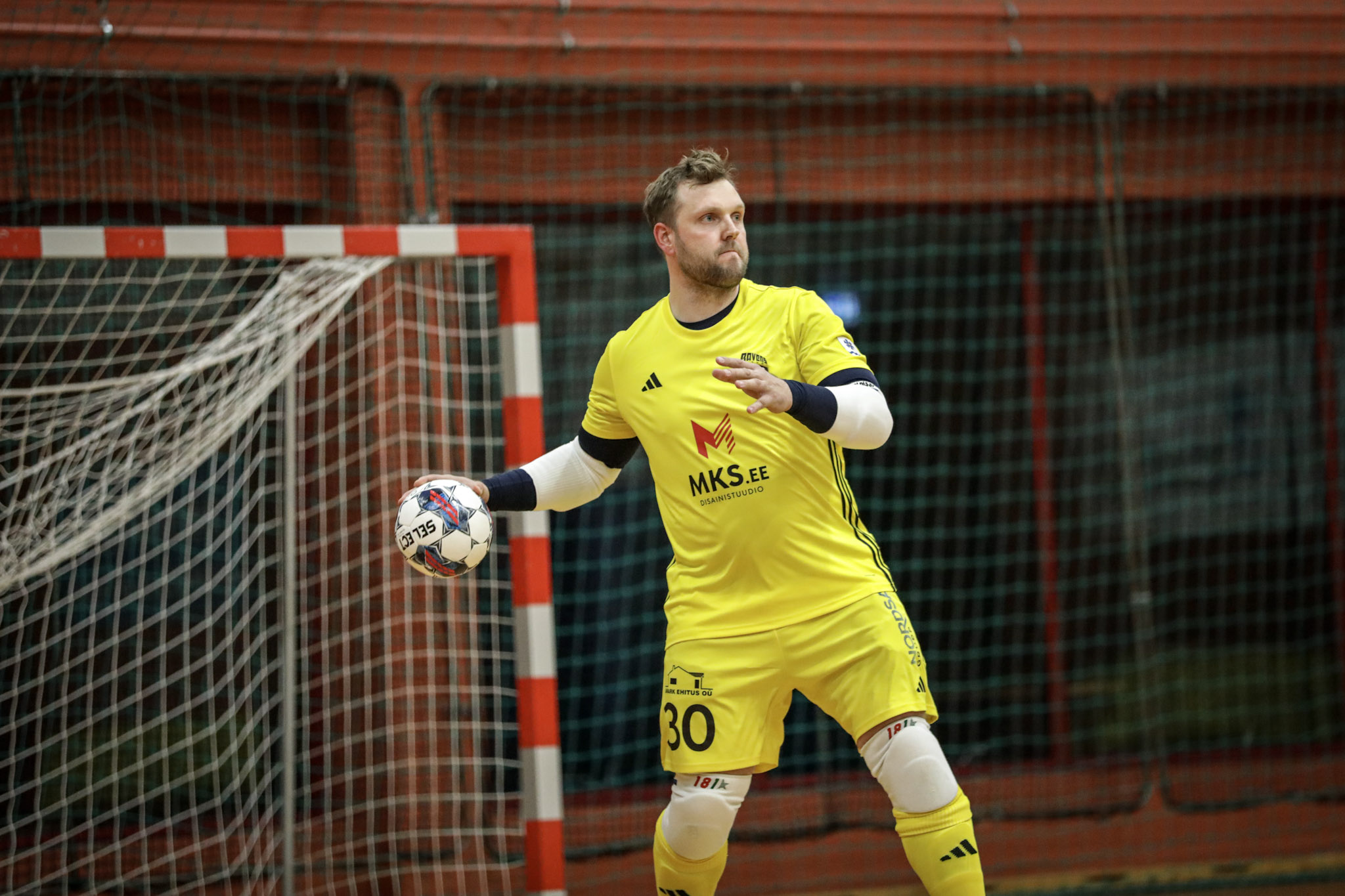
Rene Kolsar, co-founder of Ravens Futsal Club, and a former Estonian international futsal goalkeeper
Discussing Futsal with Rene, he informed us that association Futsal has been played in Estonia since 2008, and before that by groups of people who were enthusiasts about the sport before the association officially began to organise futsal competitions and a national team. Today, the national league is now known as the Coolbet Futsal League, Coolbet has been an official partner of the Estonian Football Association (EFA) since 2020. It is a gambling company created in 2016, in Tallinn and has over 230,000 customers in 7 countries. The company employs more than 170 people in Estonia and abroad.
The national league structure consists of two divisions, with the first division comprising of eight clubs, and the second division featuring ten teams, four of which are B teams affiliated with first-division clubs. A noteworthy development is the league’s online streaming on YouTube, complemented by improved commentary in recent years, providing fans with enhanced viewing experiences.
Beyond the established framework, there is a surge in the popularity of recreational leagues, offering two distinct levels. The men’s division boasts a total of 33 teams, while the women’s category features a single league comprising 13 teams. Unfortunately, as of now, there is a notable absence of a competitive national league for women.
The national futsal team has recently changed management, welcoming two coaches, Mikko Kytölä and Ville Sihvonen, from Finland, assisted by Dmitry Skiperskiy and Madis Rajando, from Estonia. Under their leadership, the management has taken proactive steps, organising additional training camps this year. Notably, the association has initiated the UEFA B license, a significant development driven by the current absence of domestic coaches in Estonia possessing futsal-specific coaching qualifications.
Navigating Challenges: Age Gaps and Facility Constraints
A prominent issue currently faced is the age distribution within the league, with a majority of players in the clubs falling within the 30+ age group. Although a futsal strategy has been devised, the association’s emphasis on younger age groups poses a concern. This focus creates a significant 14-year gap before witnessing the emergence of players into the league, which proves to be less advantageous for both the national league and the national team.
Another pressing concern revolves around the inadequate availability of suitable facilities. The competition for court time with other sports has compelled clubs to extend their search beyond their localities. This challenging situation has even led to late-night training sessions during the week, as late as 9:30 pm to 11:00 pm, which poses difficulties for players balancing their commitments to jobs and families.
Rene’s introduction to Futsal started back in 2010 when he first became aware of the sport, eventually joining his university team in 2011. Over the next four years, he also actively participated in a Futsal club in the national futsal league, however, a divergence in perspectives emerged between Rene, his friends, and the club’s founder, following some notable success.
Ravens Futsal Club: A Decade of Autonomy and Aspiration
Amidst the discord, Rene and his friends decisively chose to sever ties with their existing club. Fuelled by a longing for autonomy and a yearning to cultivate an environment where they could wholeheartedly enjoy the sport they loved, they took the bold step in 2015 to establish their club – Ravens Futsal Club. This pivotal move not only signified a break from the past but also marked the inception of a new chapter in their Futsal journey. Driven by a desire to shape their destiny within the sport, they set out on a path that has defined their unique trajectory.
As the club approaches its 10th anniversary in 2025, we had the opportunity to delve deeper into their story. Eager to gain insights, we engaged in a conversation with Rene about Ravens Futsal Club and the state of Futsal in Estonia.
FF: Can you share more about your journey into Futsal, from your introduction to the sport in 2010 to the founding of Ravens Futsal Club in 2015?
RK: My journey in Futsal began back in my school days, though at that time, it was more akin to playing indoor football with a set of different rules. My real introduction to Futsal came in 2011 when I joined my university’s first Futsal team. That experience opened my eyes to what Futsal truly entailed. We competed in the third division, and I had the opportunity to play alongside three Spanish players. We finished third that year.
In 2012, I took a break to play traditional football but found my way back to Futsal in 2013. I joined Raitwood/EMÜ, a team that had been relegated from the first league and was in need of a goalkeeper. We ended that season in 6th place, after which the team was disbanded. Fortunately, another Tartu team, JK Maksimum, aimed to compete in the first division and invited me to join them. The 2014 season with JK Maksimum was phenomenal. We finished in second place, making it to the play-offs, which we won, earning us promotion to the first division.
However, a turn of events occurred when the club owner decided to relocate the team to Tallinn. Left without a club in Tartu, we – a group of Futsal enthusiasts – were determined to continue playing. This led to the foundation of Ravens Futsal Club in 2015. Looking back now, establishing Ravens was an excellent decision and marked the beginning of a significant chapter in my Futsal career.
FF: Given the recent successes of Lithuanian and Latvian Futsal clubs on the international stage, how do you perceive the current state of Futsal in Estonia?
RK: The current state of Estonian Futsal can be characterized as a period of stagnation. One of the most significant developments in recent seasons has been the implementation of live broadcasting with commentary via the EFA’s YouTube channel. However, while the broadcast is organized by the EFA, sourcing quality commentators fall under the responsibility of the hosting club. Securing skilled commentators who often require payment adds financial strain to our already limited club budgets. This is a significant concern as we operate within an amateur league where most clubs are grappling with financial constraints.
Despite these challenges, there has been a positive development in 2023. The EFA has successfully onboarded Mikko Kytölä and Ville Sihvonen from Finland as national team coaches. Their arrival injects new vigour into our national team setup and could be seen as a beacon of hope for the future of Estonian Futsal.
FF: The age distribution within the Futsal league in Estonia you mentioned is 30 and above. Have you discussed this concern with the EFA? What strategies or initiatives do you think could be implemented to address this age gap and encourage a more diverse player demographic?
RK: Futsal in Estonia has predominantly become ‘a game for experienced men.’ Over the past decade, we have not seen significant efforts from the EFA to promote the sport among younger players. While there have been discussions about introducing more young athletes to Futsal, these have not yielded tangible outcomes. A fundamental issue is the lack of grassroots-level Futsal education in Estonia. Typically, players turn to Futsal clubs when they realise a career in football is not feasible or after they conclude their football careers. These circumstances contribute to an increasing average age among players.
Futsal is perceived as a niche sport by the FA and, despite being under its umbrella, lacks an independent organisational structure similar to that of beach soccer in Estonia. From my perspective, the survival of Futsal in Estonia is largely due to the dedication of clubs and enthusiasts rather than any structured support from the FA. Currently, there is no clear strategic roadmap for the sustainable development of Futsal, its popularisation among younger players, or the fostering of effective collaboration between clubs and the EFA.
FF: The lack of suitable facilities and late-night training sessions pose challenges for Futsal clubs. In your experience with Ravens Futsal Club, how have you navigated these obstacles, and do you see any potential solutions or improvements on the horizon?
RK: In recent years, Ravens Futsal Club has successfully navigated the issue of midnight training sessions. This has been largely achievable by relocating our home games and training sessions outside of our hometown. While this shift has introduced some logistical complexities, the benefits of better training time slots and more favourable pricing have made it a viable solution. It’s important to note the context within Estonia; for us, moving out of town means a 15-minute drive to the satellite town of Lähte.
We owe a great deal of gratitude to the management of Lähte’s sports facilities, as they have provided us the opportunity to play under excellent conditions. The main drawback of this move has been its impact on spectator numbers. Nevertheless, we are actively working to attract audiences to our games. In this regard, broadcasting our matches with commentary has been quite beneficial, offering a way for fans to stay connected even if they can’t be there in person.
One of the primary challenges we face in developing Futsal in Tartu is the availability of suitable facilities. There seems to be a prevailing focus on aesthetics over functionality when it comes to new sports facilities. Currently, we have three potential halls in Tartu for playing Futsal. However, each presents its own set of issues – one lacks proper field markings, another has had negative experiences with football, and the third option is prohibitively expensive. Compounding this issue is a pervasive misconception that Futsal damages facilities and equipment, which I believe is more of a myth than reality.
To address this, I propose a collaborative approach involving the government, the EFA, local Futsal clubs, and potential investors. The objective would be to develop a dedicated Futsal facility. Such a venue would not only alleviate the need to compete with other sports for hall time but also centralise Futsal activities in Tartu. This would be a significant step towards enhancing the infrastructure for Futsal, providing a dedicated space for both training and matches, and would greatly contribute to the sport’s development in the region.
FF: With Ravens Futsal Club approaching its 10-year anniversary in 2025, can you reflect on the journey and achievements of the club so far? Are there any specific goals or aspirations for the future?
RK: The journey of Ravens Futsal Club over the past decade has been challenging yet rewarding. Founded in a manner akin to a startup, our humble beginnings were at a public mini-football arena near a school in Tartu. The club was born out of a shared passion for Futsal among its three founders – myself, Roman Gnibida, and Eldar Rassulov. We initially came together simply to play and relish the novelty of Futsal, a relatively young sport. Soon, others joined us, mostly former football players and friends seeking a new avenue in their sporting lives.
We started in the third-tier league, gradually moving up to the second-tier and eventually to the top division. Over the years, we have established ourselves as a considerable force, consistently securing medals and playoff spots. Our major achievement was winning silver in the 2020/2021 season with the strongest squad we’ve ever had.
The consistent inclusion of our players in the national squad is a good sign for us. This continued representation in the national team not only brings pride to our club but also serves as a clear indicator that we are on the right track.
As the founding members are not getting any younger, we are now contemplating how we can contribute to the development of Futsal in Estonia post-retirement. While winning medals or the league remains an aspiration, our focus is shifting towards enhancing the game’s image and making it more attractive to younger players. There is a significant need to increase awareness about Futsal and what it offers. Estonia lacks a deep-rooted Futsal tradition, and our generation, nearing our 40s, has the potential to lay the foundation for this tradition, transcending club identities.
FF: How has the partnership with Coolbet influenced the Coolbet Futsal League and the overall development of Futsal in Estonia? What positive impacts have you observed since the association became an official partner in 2020?
RK: As a player and the director of Ravens Futsal Club, I am not privy to the specific financial details of the partnership between Coolbet and the EFA. However, from my perspective, the most notable change since Coolbet became an official partner in 2020 has been the renaming of the league to the Coolbet Futsal League. Beyond this, I have not observed any significant alterations or direct benefits from the partnership that have been communicated to the clubs. It’s possible that officials from the EFA might be able to provide more detailed insights into the impacts and benefits of this partnership.
FF: Considering the absence of a competitive national league for women in Estonia, do you see any initiatives or discussions within the Futsal community that aim to address this gap and promote women’s participation in the sport? Especially now with opportunities increasing for women on the international stage!
RK: The current state of women’s Futsal in Estonia is indeed a matter of concern, mirroring a similar lack of attention seen in other ball sports to varying degrees. To be candid, there isn’t a distinct women’s Futsal scene in Estonia. The teams that do play are typically football teams participating in one or two futsal tournaments annually, rather than dedicated Futsal teams.
From my perspective, it’s unlikely that the Estonian Futsal community will proactively address the issue of women’s participation in the sport without explicit encouragement and support from the EFA. Over the years, even men’s Futsal has received limited attention from the FA. While I would be delighted to see a surge in women’s participation in Futsal, leading to the formation of a dedicated community, I must remain realistic. Given the current circumstances, significant growth in women’s Futsal in Estonia seems more aspirational than an imminent reality.
FF: As a co-founder of Ravens Futsal Club, what values or principles have guided the club’s development, and how do you envision its role in shaping the Futsal landscape in Estonia?
RK: At Ravens Futsal Club, our guiding principle has always been a deep-rooted love for the game and a commitment to consistency. Leading a club in the unique context of Estonian Futsal presents its own set of challenges, and staying true to our core values has been paramount. We’ve experienced our fair share of highs and lows, but looking back, it’s clear that our steadfast approach has been instrumental in getting the club to where it is today. This consistency isn’t just about my personal connection with the club, but it’s about the dedication of everyone involved, regardless of how long they’ve been part of Ravens or the wider Futsal community.
Our club was inspired by pre-existing Futsal teams in Tartu, and a key part of our ethos was to build upon what existed and make improvements where we saw potential.
Ravens has undoubtedly become a strong and integral part of the Estonian Futsal landscape. We’ve managed to outlast several other clubs, building a significant history along the way. Given the small scale of the Estonian Futsal scene, Ravens stands out as a notable name. Moreover, as the sole Futsal club in Tartu, a city with a population of 100,000, our presence and impact are even more pronounced. We take pride in our role and continue to strive to contribute positively to the development and recognition of Futsal in Estonia.
FF: Looking ahead, especially with the UEFA Futsal EURO 2026 co-hosted by Lithuania and Latvia, what opportunities and challenges do you foresee for the growth and visibility of Futsal in the Baltic region?
RK: Looking towards the UEFA Futsal EURO 2026, co-hosted by Lithuania and Latvia, there are significant opportunities as well as notable challenges for Futsal in the Baltic region.
Opportunities:
- The EURO event will bring top-tier Futsal teams and renowned players to the Baltics, a region relatively small in scale. This is a vital development for Futsal in our area.
- I have great confidence in the organisational capabilities of Latvia and Lithuania and I am particularly pleased for Latvia’s achievement in earning the hosting rights. The presence of world-class players like Ricardinho, Bateria, and Paradynski in the Latvian league – names we used to watch on YouTube – is extraordinary. It’s a well-deserved milestone, and the proximity of these events to Tartu, just a few hundred kilometers away, is thrilling.
Challenges:
Despite these opportunities, I feel that Estonia remains somewhat isolated in the context of Futsal development. The transfer of knowledge and expertise seems limited.
- Comparing our progress with neighbouring countries like Finland, Latvia, and Lithuania, all of which started at a similar level as Estonia, it’s evident that they have successfully fostered a Futsal movement. While financial constraints are always a factor, another critical element is the Football Association’s dedication to developing the sport. If the FA shows a willingness to invest in and promote Futsal, the clubs will undoubtedly follow suit.
Author of the Interview
Stephen McGettigan was born in the Republic of Ireland but grew up in Belfast. He is the founder of Futsal Focus, a Football Industries MBA graduate from the University of Liverpool Management School, and he has worked in the Football and Futsal industries for 15 years.
Organ Donation
Futsal Focus is a supporter of Dáithí Mac Gabhann and his family’s campaign to raise awareness of Organ Donation. We encourage our readers to learn more about Organ Donation: https://www.organdonation.nhs.uk/
Futsal Focus
You can read more articles about domestic futsal by going to the top navigation bar or by clicking here
If you like this article and would like to keep updated on Futsal news, developments, etc then you can now follow Futsal Focus via Google News by following our page which will send you an alert as soon as we publish an article so please click here and follow us on Google.
You can also keep updated on Futsal news, developments, etc then please submit your email below in the Subscribe to Futsal Focus option.
Follow Futsal Focus by clicking on Facebook, Twitter, or Instagram or on the social media buttons on the website.

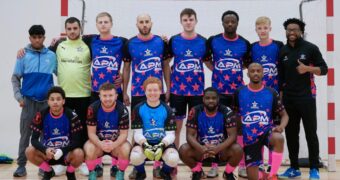



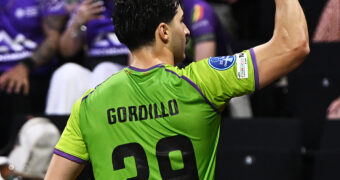
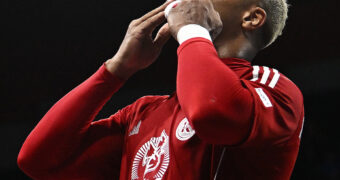
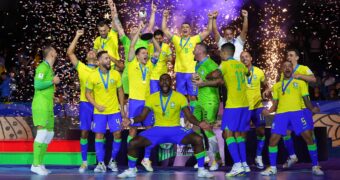
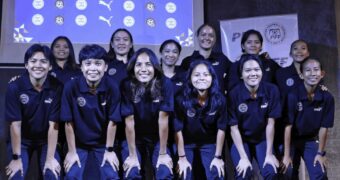
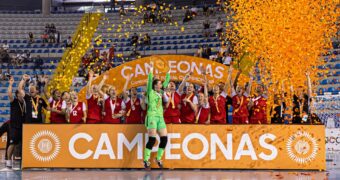
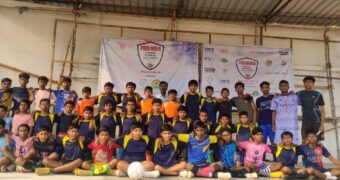





![Validate my RSS feed [Valid RSS]](https://www.futsalfocus.net/wp-content/uploads/2020/01/valid-rss-rogers.png)

